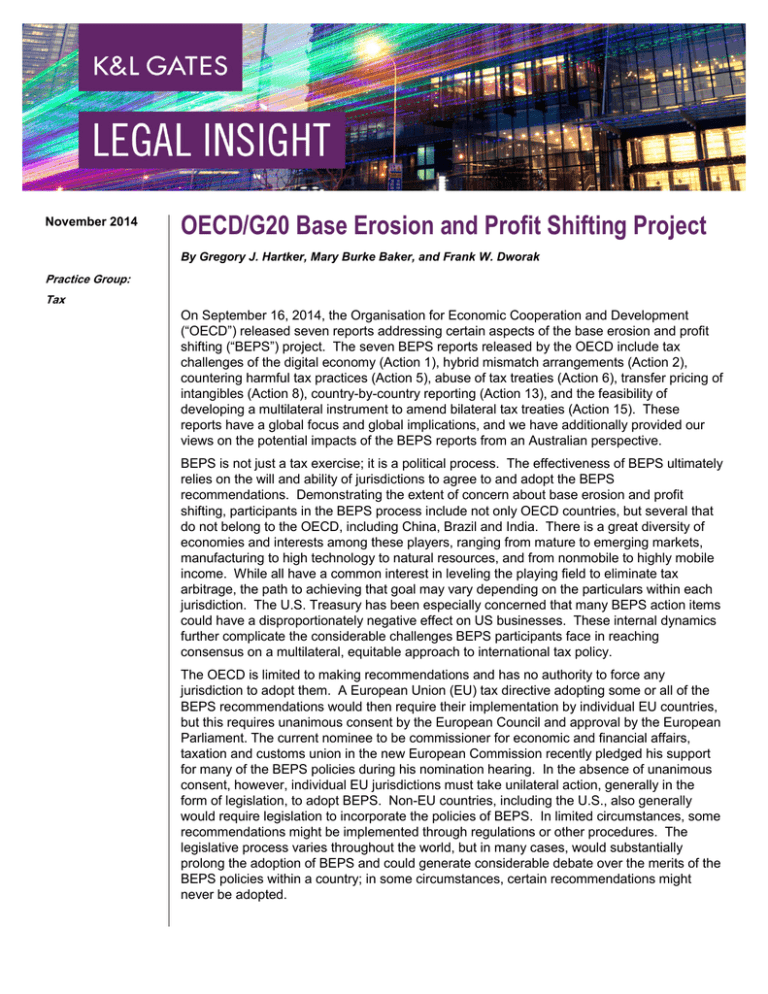
November 2014
OECD/G20 Base Erosion and Profit Shifting Project
By Gregory J. Hartker, Mary Burke Baker, and Frank W. Dworak
Practice Group:
Tax
On September 16, 2014, the Organisation for Economic Cooperation and Development
(“OECD”) released seven reports addressing certain aspects of the base erosion and profit
shifting (“BEPS”) project. The seven BEPS reports released by the OECD include tax
challenges of the digital economy (Action 1), hybrid mismatch arrangements (Action 2),
countering harmful tax practices (Action 5), abuse of tax treaties (Action 6), transfer pricing of
intangibles (Action 8), country-by-country reporting (Action 13), and the feasibility of
developing a multilateral instrument to amend bilateral tax treaties (Action 15). These
reports have a global focus and global implications, and we have additionally provided our
views on the potential impacts of the BEPS reports from an Australian perspective.
BEPS is not just a tax exercise; it is a political process. The effectiveness of BEPS ultimately
relies on the will and ability of jurisdictions to agree to and adopt the BEPS
recommendations. Demonstrating the extent of concern about base erosion and profit
shifting, participants in the BEPS process include not only OECD countries, but several that
do not belong to the OECD, including China, Brazil and India. There is a great diversity of
economies and interests among these players, ranging from mature to emerging markets,
manufacturing to high technology to natural resources, and from nonmobile to highly mobile
income. While all have a common interest in leveling the playing field to eliminate tax
arbitrage, the path to achieving that goal may vary depending on the particulars within each
jurisdiction. The U.S. Treasury has been especially concerned that many BEPS action items
could have a disproportionately negative effect on US businesses. These internal dynamics
further complicate the considerable challenges BEPS participants face in reaching
consensus on a multilateral, equitable approach to international tax policy.
The OECD is limited to making recommendations and has no authority to force any
jurisdiction to adopt them. A European Union (EU) tax directive adopting some or all of the
BEPS recommendations would then require their implementation by individual EU countries,
but this requires unanimous consent by the European Council and approval by the European
Parliament. The current nominee to be commissioner for economic and financial affairs,
taxation and customs union in the new European Commission recently pledged his support
for many of the BEPS policies during his nomination hearing. In the absence of unanimous
consent, however, individual EU jurisdictions must take unilateral action, generally in the
form of legislation, to adopt BEPS. Non-EU countries, including the U.S., also generally
would require legislation to incorporate the policies of BEPS. In limited circumstances, some
recommendations might be implemented through regulations or other procedures. The
legislative process varies throughout the world, but in many cases, would substantially
prolong the adoption of BEPS and could generate considerable debate over the merits of the
BEPS policies within a country; in some circumstances, certain recommendations might
never be adopted.
OECD/G20 Base Erosion and Profit Shifting Project
In the U.S., it is difficult to gauge to what extent the BEPS project will influence US tax
reform. Progress toward comprehensive tax reform has stalled in a contentious political
environment, without a clear path forward. Yet, international tax policy, in particular, base
erosion and profit-shifting issues, is front and center in the US tax policy debate. The recent
surge in corporate inversions is just one symptom of the need to revamp the US tax code to
make US-headquartered businesses more competitive in a global marketplace. If the BEPS
timeline stays on track, and Congress and the Administration remain at loggerheads
regarding reform, the influence of BEPS on US international tax policy going forward could
be considerable.
The links and attachments hereto contain more digestible overviews of some of the important
concepts discussed in the OECD BEPS reports. These overviews have been prepared by
K&L Gates tax specialists and personnel from all corners of the world. In addition, the
“Significant Items of Note” highlight items that to date may not have received sufficient
attention or that will likely permeate future tax planning and compliance efforts and impact all
stakeholders operating internationally.
Significant Items of Note
• The country-by-country reporting proposals will be expected to add material compliance
costs and may be used by some countries as justification for the imposition of additional
tax burden.
• Given the difficulty of compliance and enforcement in many B2C transactions, countries
may look to financial and payment processing companies to act as withholding and
compliance agents.
• Companies that are sufficiently “dematerialized” may face more liberalized nexus and/or
doing business-type provisions that allow the market in which the consumer is located to
more freely tax income generated by such companies.
• Treaty abuse would be curtailed by providing limitation on benefits clauses and/or adding
general anti-abuse rules whereby, in the case of the latter, a treaty benefit would not be
available where one of the principal purposes of the transaction or arrangement is to
secure a benefit under a treaty and obtaining that benefit would be contrary to the object
and purpose of the relevant provisions of the treaty.
• Heightened scrutiny of preferential effective rates for intangible income (patents or
intellectual property boxes) and a requirement that substantial localized activities be a
prerequisite for any such preferential effective rates.
• Although the OECD declined to specifically treat “location savings” as an intangible,
certain low cost outsourcing jurisdictions (e.g. China and India) continue to insist
otherwise.
Authors:
Gregory J. Hartker
greg.hartker@klgates.com
+1.415.882.8099
2
OECD/G20 Base Erosion and Profit Shifting Project
Mary Burke Baker
mary.baker@klgates.com
+1.202.778.9223
Frank W. Dworak
frank.dworak@klgates.com
+1.949.623.3585
Anchorage Austin Beijing Berlin Boston Brisbane Brussels Charleston Charlotte Chicago Dallas Doha Dubai Fort Worth Frankfurt
Harrisburg Hong Kong Houston London Los Angeles Melbourne Miami Milan Moscow Newark New York Orange County Palo Alto Paris
Perth Pittsburgh Portland Raleigh Research Triangle Park San Francisco São Paulo Seattle Seoul Shanghai Singapore Spokane
Sydney Taipei Tokyo Warsaw Washington, D.C. Wilmington
K&L Gates comprises more than 2,000 lawyers globally who practice in fully integrated offices located on five
continents. The firm represents leading multinational corporations, growth and middle-market companies, capital
markets participants and entrepreneurs in every major industry group as well as public sector entities, educational
institutions, philanthropic organizations and individuals. For more information about K&L Gates or its locations,
practices and registrations, visit www.klgates.com.
This publication is for informational purposes and does not contain or convey legal advice. The information herein should not be used or relied upon in
regard to any particular facts or circumstances without first consulting a lawyer.
© 2014 K&L Gates LLP. All Rights Reserved.
3

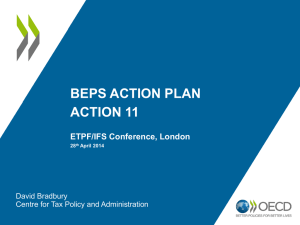
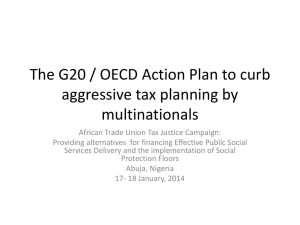


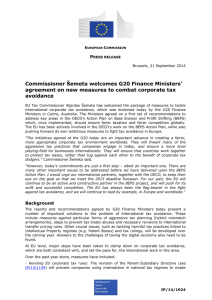
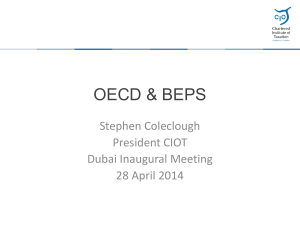
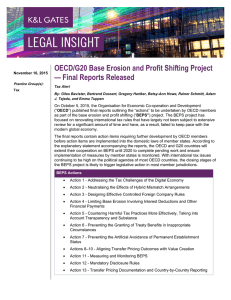
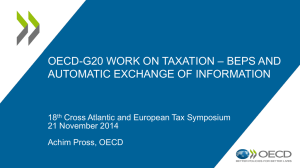
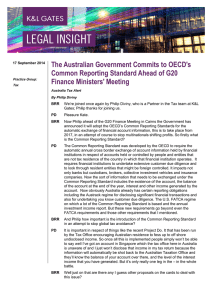

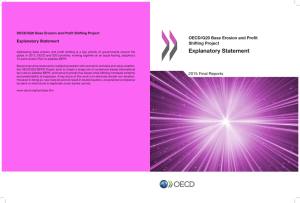
![[Presentation title]](http://s2.studylib.net/store/data/018636104_1-3a59f1afbdf61f1d52e9031b6e26c8a4-300x300.png)